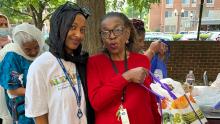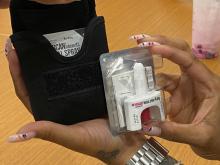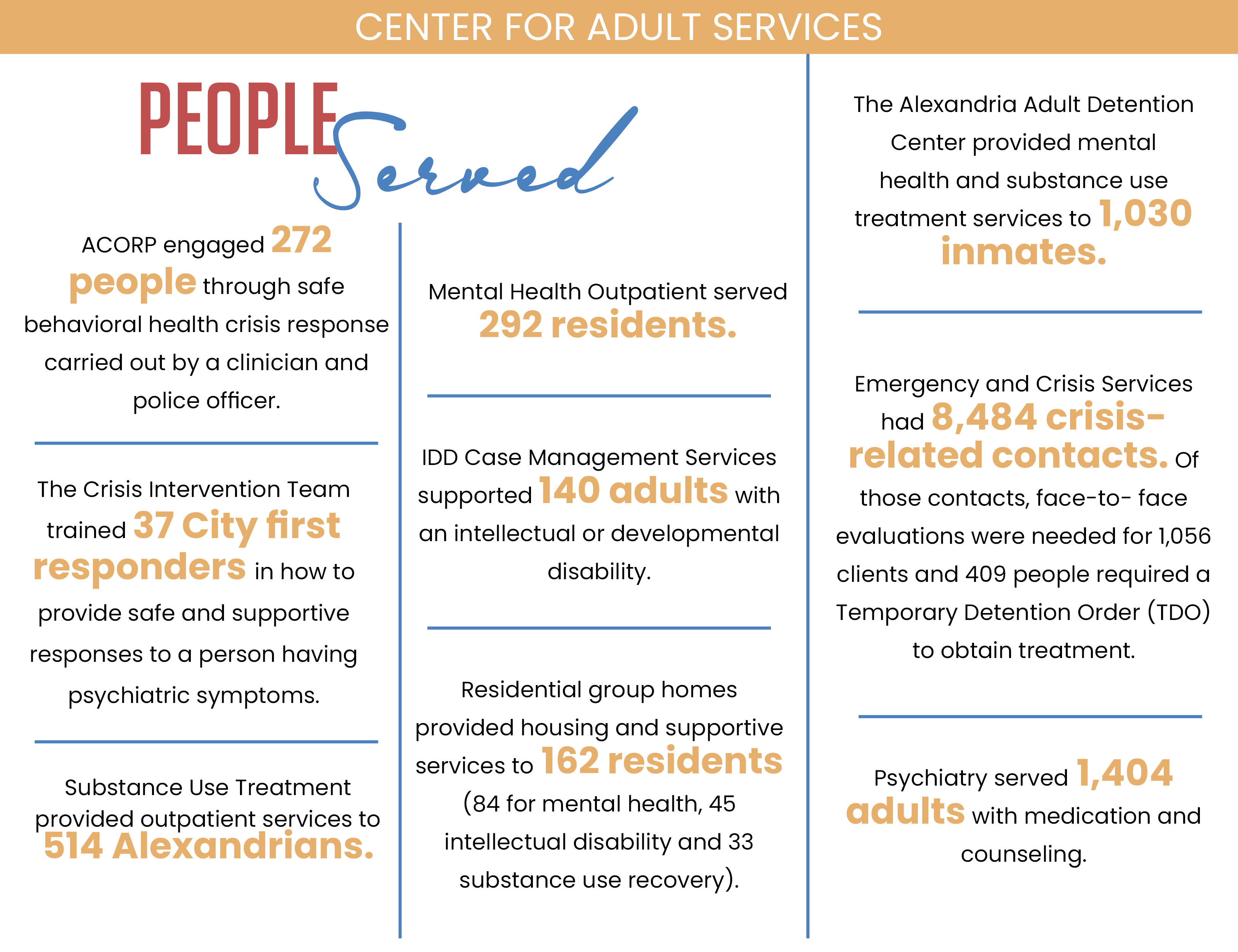
Center for Adult Services | FY23 Community Impact Report

DCHS employees in Adult Services provide compassionate and effective services that support self-determination, recovery and resiliency for Alexandria residents affected by health conditions, developmental disabilities and substance use disorders.

The Senior Farmers Market Fresh Program (SFMFP) started, issuing $50 vouchers to 450 seniors living below the poverty line. The seniors struggle with hard decisions, such as buying medication or food. SFMFP coordinated Pop-up Farmers’ Markets in areas where seniors live, including Annie B. Rose Senior Apartments, Claridge House II, Ladrey High Rise and Southern Towers. This supported individuals without transportation by bringing fresh produce for purchase outside of their homes.

Aging and Adult Services, in collaboration with the Successful Aging Committee, celebrated National Centenarian Day by recognizing the experiences and achievements of Alexandrians who have lived a century or longer. A presentation at City Hall honored the residents who would be 100 years old or older by the end of the year. They were among more than 100,000 centenarians in the U.S.

The Alexandria Co-Response Program (ACORP) expanded. ACORP pairs a licensed clinician with a Crisis Intervention Team police officer and together, the team responds to persons experiencing a behavioral health crisis in the community. The program now has three response teams that work to safely resolve situations on-scene thereby decreasing the need for transportation to a hospital or a criminal legal setting.

The City Opioid Work Group partnered with restaurants to help prevent opioid-related deaths by offering overdose prevention training and Narcan, a nasal spray that reverses the effects of an overdose. As opioid overdoses continued increasing nationwide, this step will help decrease deaths, reduce the stigma around addiction and mental health, and address the problem head-on in the community. The Alexandria Health Department aims to talk with 100% of restaurants and make Narcan available at 25% of restaurants by the end of 2023.

The Intellectual and Developmental Disabilities Program partnered with "Our Stomping Ground," a group that has expanded housing options for people with disabilities throughout northern Virginia, to successfully help three clients move into their own independent low-income housing. While serving clients with mild to severe intellectual disabilities, supporting them in achieving this level of independence is a monumental success!

Assertive Community Treatment (ACT), a mobile, community-based service for clients with serious mental health conditions, received state funding to acquire Athelas One, a blood-diagnostic-device for at-home use. This expanded the number of clients who can be treated on Clozaril, the gold standard for schizophrenia. Because Clozaril requires blood checks for proper dosing, this technology improved efficiency by eliminating the trips to a lab, provided a less intrusive and less painful intervention for clients, and helped them achieve greater levels of stability in their housing and their relationships.

TRAILS, the First Episode Psychosis Program, coordinated specialty services for 30 teens and young adults who experienced their first psychotic episode. Several graduated from services after reporting increased participation in employment and school, as well as a decrease in symptoms and hospitalizations. Among current clients, half are pursuing further educational goals and/or working. TRAILS continued to build on the program in collaboration with the Wellness Center, where the TRAILS group meets weekly. The group focuses on independent living skills and increasing socialization.

The Wellness Center Psychosocial Day Program for persons living in recovery from severe mental illness focused on activities that were inclusive of both client and staff experiences. Cultural exploration groups, international holiday celebrations, and ongoing discussions among members about their roots and identities were an enriching experience for the Wellness Center community. These ongoing efforts were developed in the hopes that the 91 members find increased connection among their peers both in the Center and in the community.
People Served
